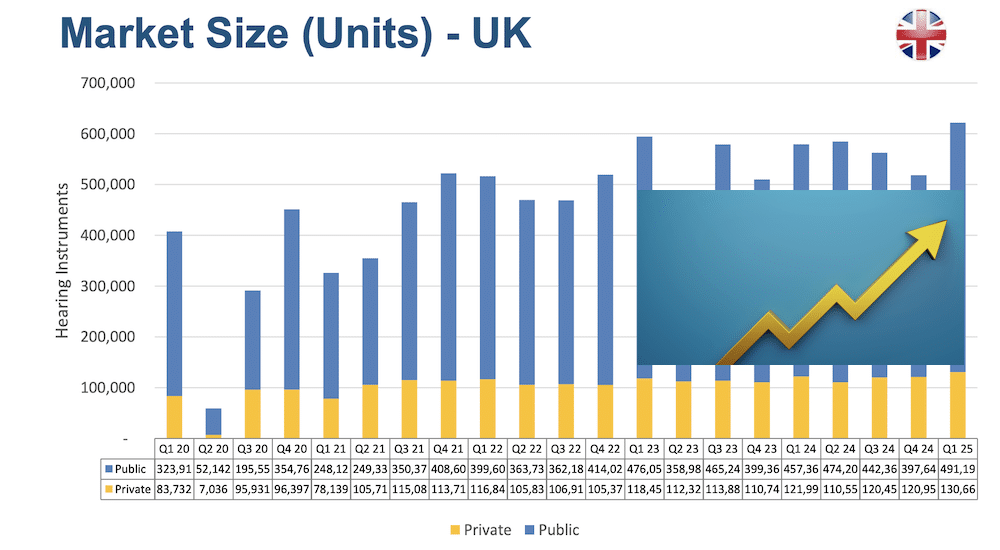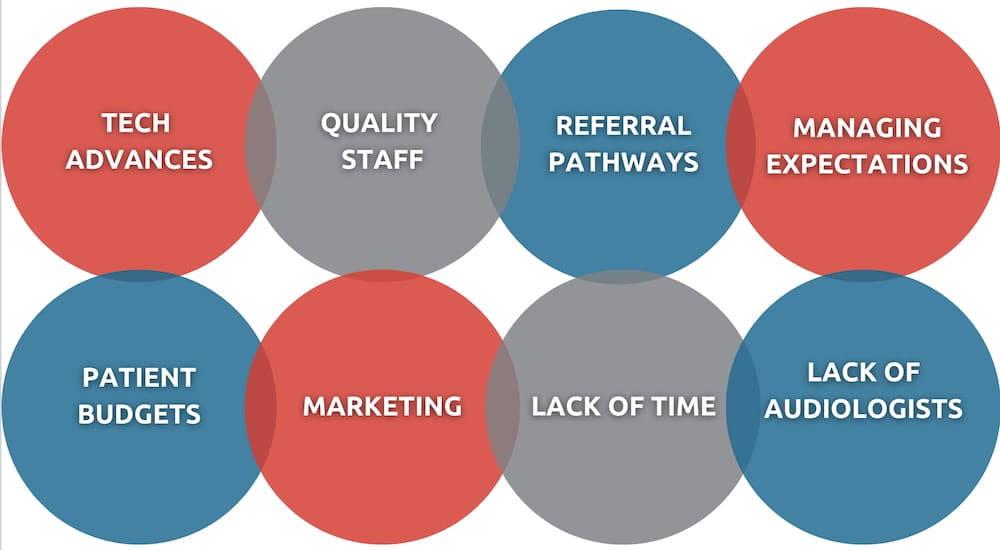New report bolsters call on government to urgently review England's failing earwax removal services
New research by the Royal National Institute for Deaf People (RNID) has revealed that less than half of NHS Integrated Care Boards (ICB) are providing wax removal services in line with public health guidelines. Some parts of England offer no service at all, leaving 9.8 million people totally without access on the NHS if they need it.

Those patients with no local NHS provision for earwax removal, many of whom suffer painful and distressing symptoms that can lead to social isolation and mental health difficulties, face the option of private treatment at a cost of between £50 to £100, or trying to manage the earwax themselves.
Until 2019, most people who needed ear wax removal were able to access this at their GP surgery. More recently however, people have increasingly found that their GP surgery no longer offers this service.
Getting earwax removal is a “postcode lottery”
The RNID is now denouncing a “postcode lottery” of NHS ear wax removal services in England, and has gathered crucial data on just how patchy provision is nationwide. The charity submitted Freedom of Information requests to all 42 ICBs in England, of which only 18 said they fully commission ear wax removal services in line with guidelines from the National Institute of Health and Care Excellence (NICE).
The RNID reports that seven ICBs do not commission ear wax removal services at all, leaving approximately 9.8 million people totally without access on the NHS. These areas are Birmingham and Solihull, Dorset, North West London, South West London, Suffolk and North East Essex, Mid and South Essex, Cornwall and The Isles of Scilly.
A total of 15 ICBs partially commission services, with the majority providing ear wax removal only within limited areas inside their geographical footprint. In some places where the service is commissioned, not all GP practices choose to deliver it. Some ICBs also have restrictive criteria – such as only offering the service to people over 55 – which goes against NICE guidelines.
Urgent review needed
The RNID is calling for the Department of Health and Social Care to commission an urgent review of NHS provision, and the call is backed by the UK’s leading audiology professional bodies, including the British Academy of Audiology and the British Society of Audiology.
The UK Government is urged to intervene to ensure patients with a clinical need for ear wax removal have access to timely local NHS provision regardless of where they live.
Commissioners should investigate the different delivery models in use or innovate new approaches to establish cost-effective models to meet their populations’ needs.
And commissioners must ensure that their ear wax removal providers are meeting their contractual obligations, and that patient-facing staff are aware of availability and access criteria.
Better patient information on earwax
A further demand is that NHS England should publish improved patient information about the self-management of earwax and ensure that its providers share consistent, safe and evidence-based information with their patients.
The campaign is being backed wholeheartedly by leading hearing researcher Kevin Munro, Ewing Professor of Audiology at Manchester Centre for Audiology and Deafness, University of Manchester & NIHR Manchester Biomedical Research Centre. Professor Munro’s foreword to the wax campaign report calls it a “clarion call” necessary to “improve the quality of life for two million people who need ear wax removed each and every year, often on multiple occasions.”
“The National Institute for Health and Care Excellence (NICE), who provide guidance to health and care professionals, recommend that ear wax removal services should be provided by the NHS in local settings. Why then are people finding it so difficult to have ear wax removed locally by the NHS?”asks Prof. Munro.
“Questions have been raised in Parliament about why people with ear wax are being referred to hospitals, resulting in long waiting times with expensive and inefficient use of specialist services. The alternative for individuals is often to pay a private clinic, essentially a ‘tax on wax’. This applies to my own father, elderly and relying on hearing aids, as well as people on low incomes,” he continues.
Source: RNID


